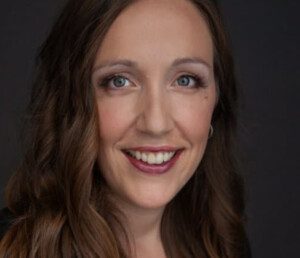Wondering if your amazing ability to heavily mask for years means you’re not autistic and are actually neurotypical?
After all, how could you mask so well if you’re actually autistic?
• You’ve gotten an adult diagnosis of ASD. You’re now wondering if this is correct since you’ve been heavily masking all your life.
• Is there a correlation between a high skill at masking and a misdiagnosis of autism?
• If you’re truly autistic, how have you been able to act so neurotypical and fool everyone that you’re as “normal” as they are?
Doubting your new diagnosis of Autism Spectrum Disorder is called autistic imposture syndrome.
Many newly diagnosed Autistics experience this for a variety of reasons.
One of them is that of a history of extensive, spot-on masking abilities.
“A person’s ability to mask does not change whether they are autistic or not,” says Dr. Jessica Myszak, licensed psychologist, and director of The Help and Healing Center, whose practice is mostly autism assessment for adults.
“Many of the clients I’ve seen have spent decades perfecting their mask by people watching, reading books or engaging in activities that help them learn the tools of masking (i.e., drama club, pursuing careers in therapy, teaching or other areas with specific rules of engagement).
“Masking is a learned behavior that is effortful and draining, so while it may be difficult for others to recognize, a person who is masking usually is quite aware they are doing so, or if they have been doing it so long around others that it is on autopilot, they know how much exhaustion can follow being around others.”
I’m going to reassure you that being prolific at masking does NOT, in any way, shape or form, mean that you’re any less autistic than a newly diagnosed Autist who’s never masked or has always found it difficult to do even at a light level.
Just a recap on masking: This is when an autistic individual – and it can begin in childhood – knows what traits they have that are driven by their autism, and consciously suppresses them when around others to avoid being perceived as weird.
Masking also refers to “acting neurotypical” to fit in, to seem normal, to gain friendships, to keep a job, to avoid being thought of as odd or strange.
Examples of Masking in ASD
• Giving eye contact even though it feels like you’re stepping into someone’s personal space.
• Memorizing, often word-for-word, how to respond to common questions such as, “What are your plans for the weekend?” by coworkers, or, “What’d you do this weekend?” when you come back Monday morning.
• You may have a whole litany of rehearsed responses or scripts for a bunch of commonly asked questions that occur at social events or on the job.
• You may have repeatedly rehearsed them before a mirror, practicing different facial expressions and body movements.
• Suppression of any trait or behavior that might give away your autism or suggest that you’re different from others.
The Ability to Mask Very Well Doesn’t Mean You Can’t Be Autistic
Something snapped inside me in 2021 that made me begin seriously suspecting that I was on the Autism Spectrum.
It was the ONLY diagnosis that explained my internal and external experiences throughout life. I was diagnosed in March 2022.
Prior to my ASD assessment, during my investigation of mild autism or what was formerly known as Asperger’s syndrome, I learned about this thing called masking.
The more I read about it, the more I realized that I had never done any such thing – beyond just at a superficial or very slight level.
This is why, throughout my school years, I was thought of as weird, odd, different or socially awkward among my classmates.
Teachers picked up on this, too, and many teachers didn’t like me, even though I was a model student.
It had never dawned on me to study and analyze the actions of other girls and then mimic them to blend in and appear normal.
In fact, had this been suggested to me during grade or high school, I would’ve thought the suggestion was absolutely nuts.
- Why would I want to act like classmates who didn’t like me?
- Why would I want to act like peers whom I thought were immature, rude or stupid?
- I couldn’t imagine being anyone other than ME.
In a nutshell, I had always stunk at masking.
So when I learned that often, or even typically, mildly autistic women go through life masking, I began to wonder if my lack of masking would disqualify me from a diagnosis.
I intended on telling my examiner that I’d always been poor at masking, even as an adult, even when I knew it would get me ahead in the business world.
Despite my examiner learning that I was never more than a slight masker, she gave me the ASD diagnosis (YESSSS!).
But I still was troubled by what seemed like every single late-diagnosed autistic woman has a history of heavy masking. Why was I the oddball out?
However, I read of a late-diagnosed woman who developed autistic imposter syndrome because she’d always been so skilled at heavy masking!
The doubt of her autism diagnosis was for the opposite reason of mine; how fascinating!
As I read her narrative, I thought, “Amazing! If you’d had MY experience with masking, you’d be thoroughly convinced you were truly autistic! Yet here I am, with the exact history that you believe strongly supports an autism diagnosis – yet it makes ME doubt it. Wow!”
Reassurance You ARE Autistic and Not a Flawed NT

©Lorra Garrick
Pretending to be NT is not a requirement to be autistic.
In fact, you’ve certainly seen numerous adults with the so-called high functioning autism whose autism was quite obvious.
They certainly weren’t masking in the least, yet had the ASD diagnosis anyways!
Remind yourself that there are many Level 1 Autists who have never masked enough to pass as NT; whose quirks are blatantly open; who may have multiple quirks going on at the same time such as with mannerisms, gait, speech, stimming and poor eye contact.
Though it’s possible that for some of these individuals, the full mask has been removed in favor of embracing their Autistry, it’s equally possible that there’s never been a mask to begin with.
Another point of reassurance is to remind yourself how much you had to observe, study and practice human behavior in order to become so good at masking.
The skill didn’t come to you overnight. It was developed and honed over time.
And despite being so good at masking, many such Autistics are left just as drained from it as they’d always been when they first began getting pretty savvy at it.
Based on what I’ve read about masking in autism, the Autist never gets used to it, and it often leads to “autistic burnout.”
An NT wouldn’t have this experience, because “how to act” among people comes instinctively to them.
That you felt a need to mask at all is actually a strong case for ASD.
However, if you’ve always bombed at masking, or never even bothered with it – other than just superficially to get a job or get the best deal on your new car – this in NO way means you can’t be autistic or are less autistic than another Autist who excels at masking.
Masking is simply a coping mechanism for many Autists. Some do it. Some don’t and find it easier to just be themselves, even if it means everyone else can tell they’re wired differently.
And just for some humor, I want to share the time I found an article with “mask” and “autism” in the title.
This was during the mask mandates during the COVID-19 pandemic. I thought the article was about how some autistic people found wearing a face mask unbearable.
Then I quickly realized it was about masking to appear neurotypical. I left a comment for the writer about this.
She replied that she recently had caught a headline, “Autism and Masking,” and thought it referred to the coping mechanism of masking.
To her surprise, it was about how to make COVID -19 face masks more bearable for autistic people!
Dr. Jessica Myszak, a psychologist who specializes in autism assessment for both children and adults, is the founder of Autistic Support Network. She sees clients in-person in the Chicago area and over telehealth in 31 states. Learn more about her practice at helpandhealingcenter.com.
 Lorra Garrick has been covering medical and fitness topics for many years, having written thousands of articles for print magazines and websites, including as a ghostwriter. She’s also a former ACE-certified personal trainer. In 2022 she received a diagnosis of Level 1 Autism Spectrum Disorder.
Lorra Garrick has been covering medical and fitness topics for many years, having written thousands of articles for print magazines and websites, including as a ghostwriter. She’s also a former ACE-certified personal trainer. In 2022 she received a diagnosis of Level 1 Autism Spectrum Disorder.
.











































